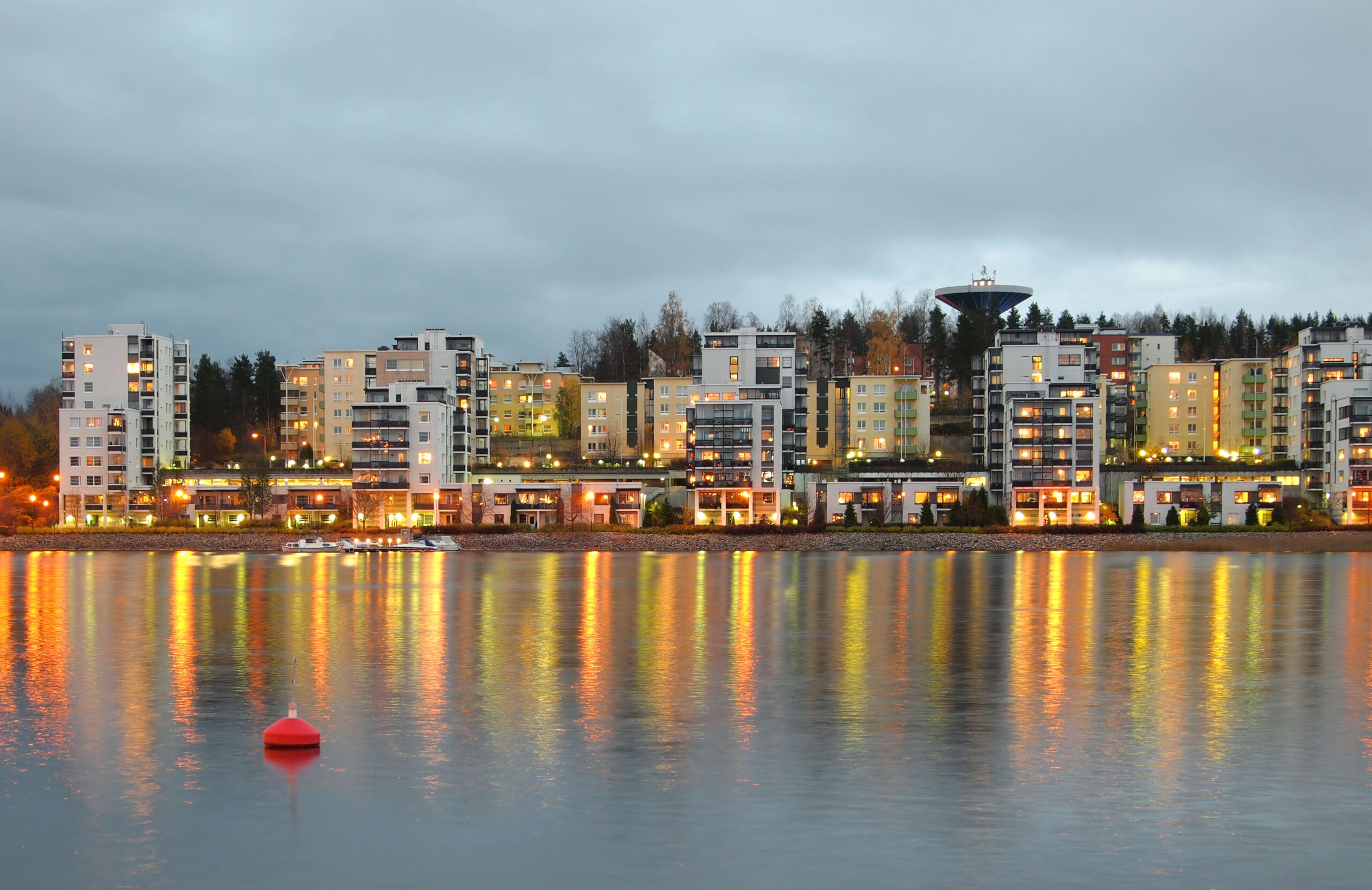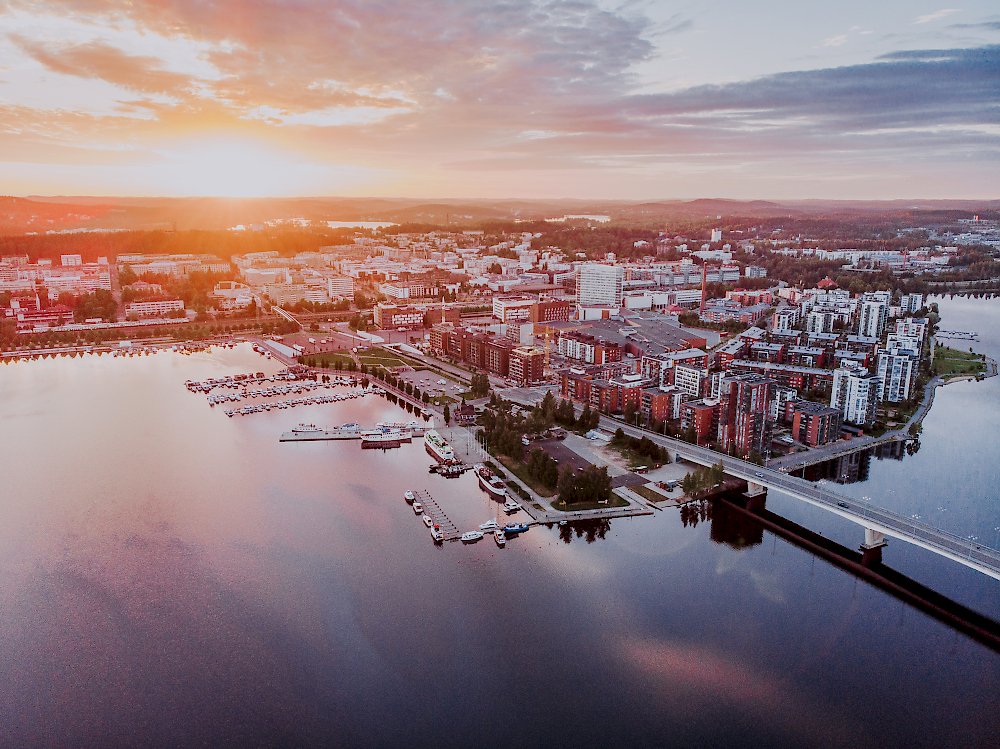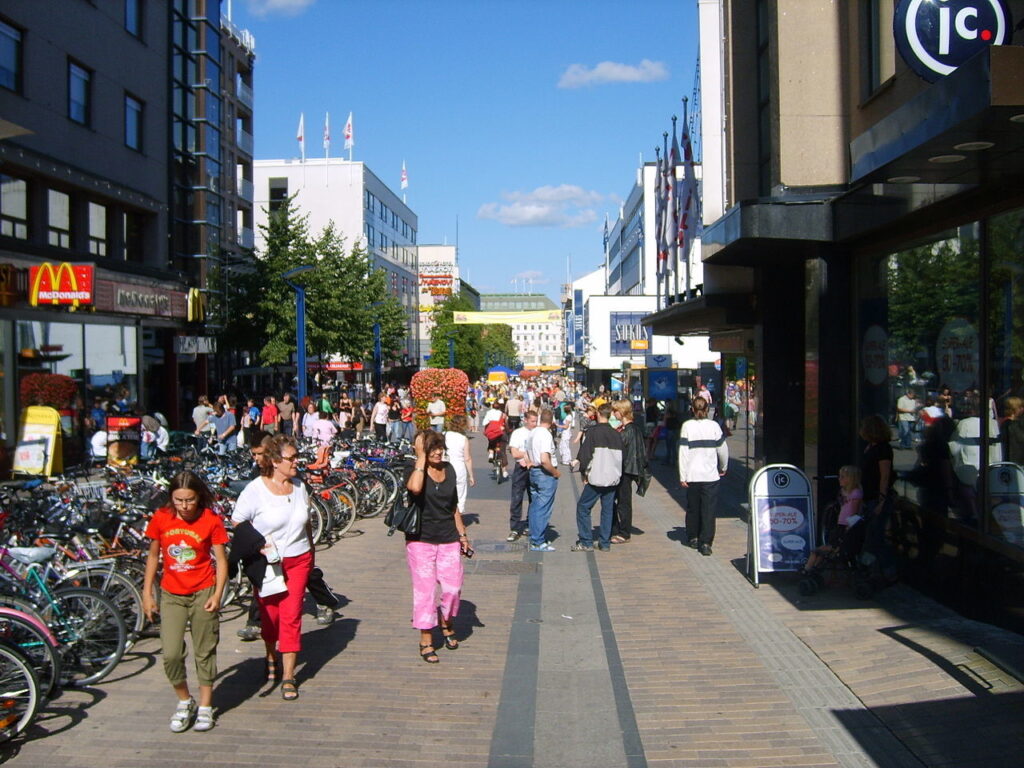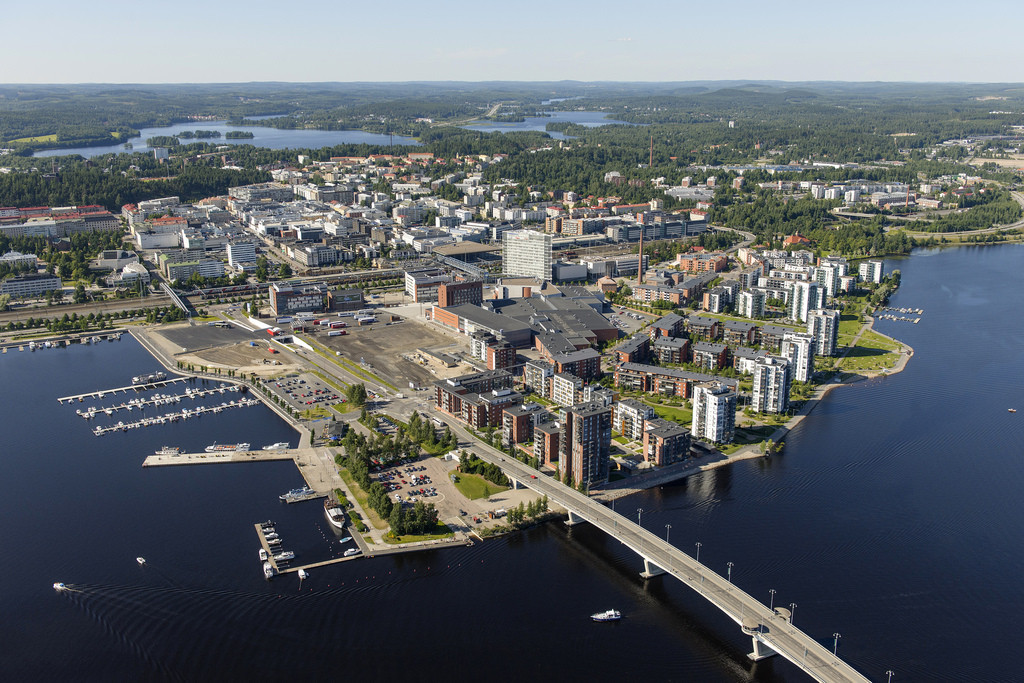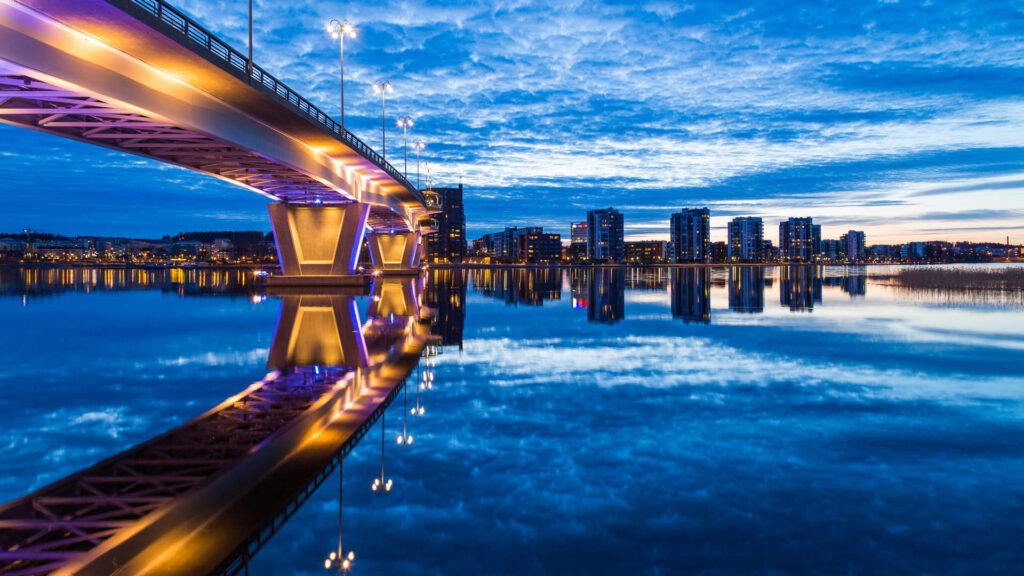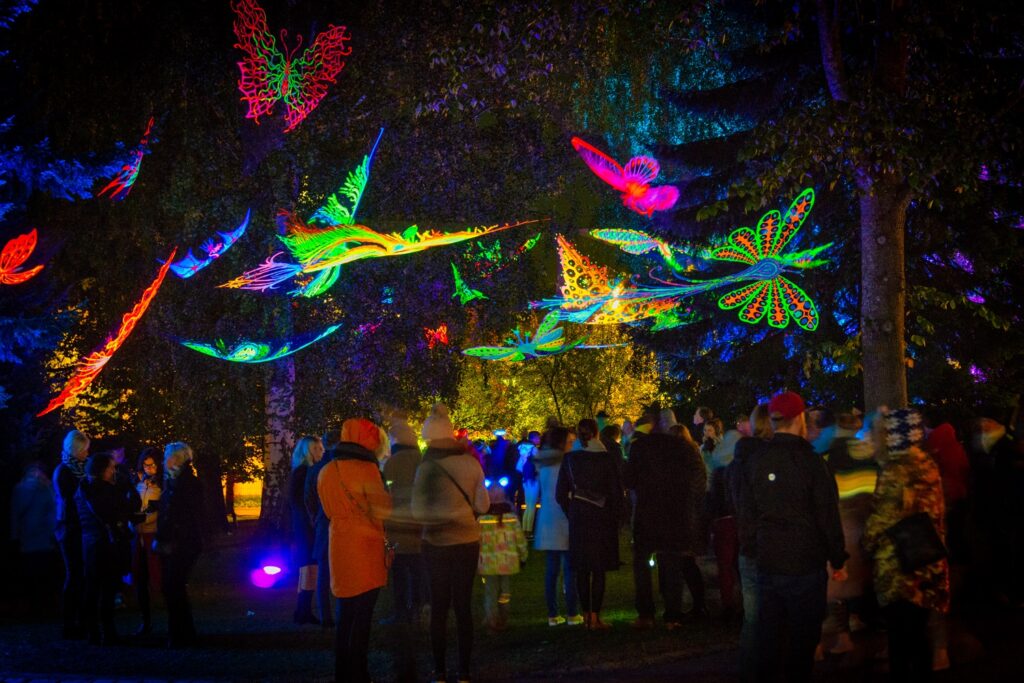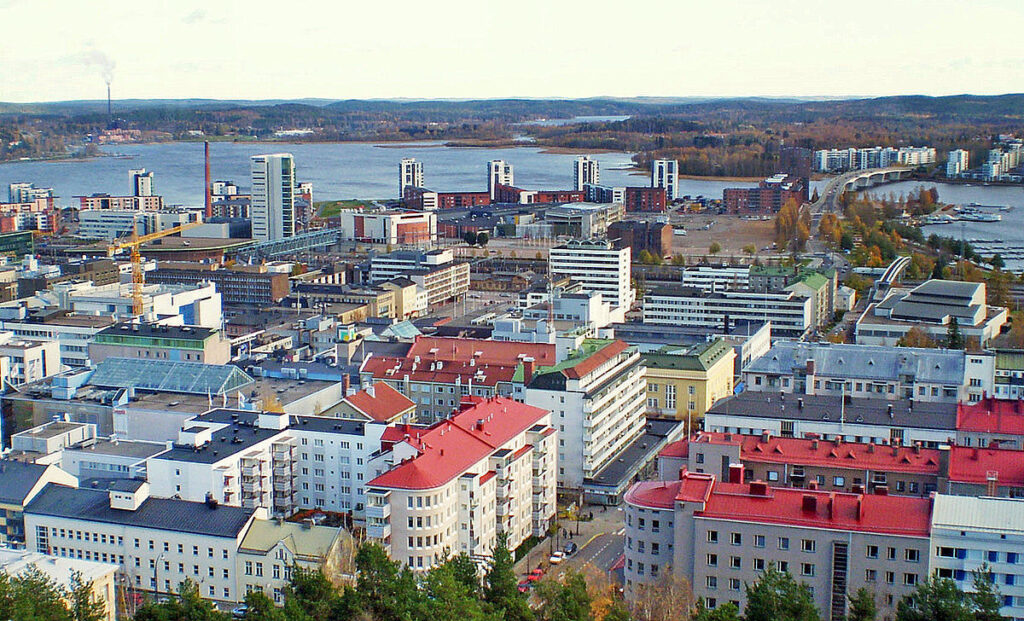Jyväskylä is a city and municipality in Finland in the western part of the Finnish Lakeland. It is located about 150 km north-east from Tampere, the third largest city in Finland; and about 270 km north from Helsinki, the capital of Finland. Jyväskylä is the largest city in the region of Central Finland and in the Finnish Lakeland.
The works of the most famous Finnish architect Alvar Aalto can be seen throughout the city. The city hosts the Neste Oil Rally Finland, which is part of the World Rally Championship. It is also home of the annual Jyväskylä Arts Festival.
Food culture
In the 1980s, Jyväskylä’s parish dishes were the sparrow roast baked on top of birch, alder or willow spices, Paloka’s salad containing cabbage, celery and tomato , rye rye , vendace roe , coffee and bagel, and pus. Pork loin , perch and plum rhyme were chosen as the main dishes of the Jyväskylä countryside .
Culture and places to visit
In addition to the city theater, Jyväskylä has an amateur theater, Jyväskylä Room Theater . The Amateur Theater Summer, which brings together theater enthusiasts every year, was moved to Jyväskylä in 2016.
Places to visit museums and
- Alvar Aalto Museum
- Jyväskylä Art Museum
- Finnish Air Force Museum
- Museum of Central Finland
- Päijänne inland waterway vesselsport
- Finnish National Costume Center
- Finnish Handicraft Museum
- Greenland
- Toivola Old Yard
Churches and other sacral buildings
Evangelical Lutheran Churches
- Jyväskylä City Church
- Taulumäki Church
- Keltinmäki Church
- Korpilahti Church
- Kuokkala Church
- Paloka Church
- Säynätsalo Church
Autocephalous Orthodox Churches
- Church of the Resurrection of Christ
Catholic churches
- Church of St. Olaf
Nationally important built cultural environments
- Jyväskylä railway station
- Jyväskylä Old Cemetery and Taulumäki Church
- University of Jyväskylä area
- Harju and Vesilinna tower
- Church park and its surroundings
- Card base area
- Mankola area
- Rautpohja and Tourula factory sites
- Residential areas of Seminarinmäki and Älylä
- Säynätsalo Industrial Community and Muuratsalo Villa
Events
Well-known events in the city include the Jyväskylä Summer since 1956 , the Yläkaupungin Yö city festival, the City of Light, which specializes in urban lighting, the Suomipop festival in Lutakko, Finland’s oldest indoor festival Jyrock and Neste Ralli .
Education
Jyväskylä is a traditional centre of education. Including school children, and the students in high schools, vocational schools, the university of applied sciences, and the universities, the number of students and pupils in the city reaches 45,000, boosting Jyväskylä’s reputation as a “student city”. Over 30% of the city population are students. A number of firsts in Finnish education have taken place in Jyväskylä:
- Jyväskylä Lyceum (Finnish: Jyväskylän Lyseon lukio) is the world’s first junior secondary school with Finnish as the language of instruction.[65] It started its first term on 1 October 1858 and turned 160 years old in 2018. Lyceum still exists and is one of the nine upper secondary schools in the city.
- The first Finnish-medium teacher training college (1863)
- The first Finnish-medium school for girls (1864)
- Finland’s first Summer University (1912)
Due to this, among other things, the city has earned the nickname Athens of Finland. The teacher training college later evolved into the College of Education (1934) and further into the multidisciplinary University of Jyväskylä (1966).
The University of Jyväskylä is one of the most popular universities in Finland. Almost 16,000 students are enrolled to study for a bachelor’s or master’s degree, and the university also offers PhD programs in most of its subjects. Historically, the university has excelled in the study of education, but in the last few decades it has also gained respect in the sciences. It is the only university in Finland offering university-level education in sports, training sports teachers and coaches. Today the University offers also Cyber Security degrees, in close co-operation with the Finnish Defence Forces.
JAMK University of Applied Sciences has 8.000 students. It has four different units: School of Business and Services Management, School of Health and Social Studies, School of Technology and Teacher Education College. HUMAK University of Applied Sciences educates cultural management in Jyväskylä.
